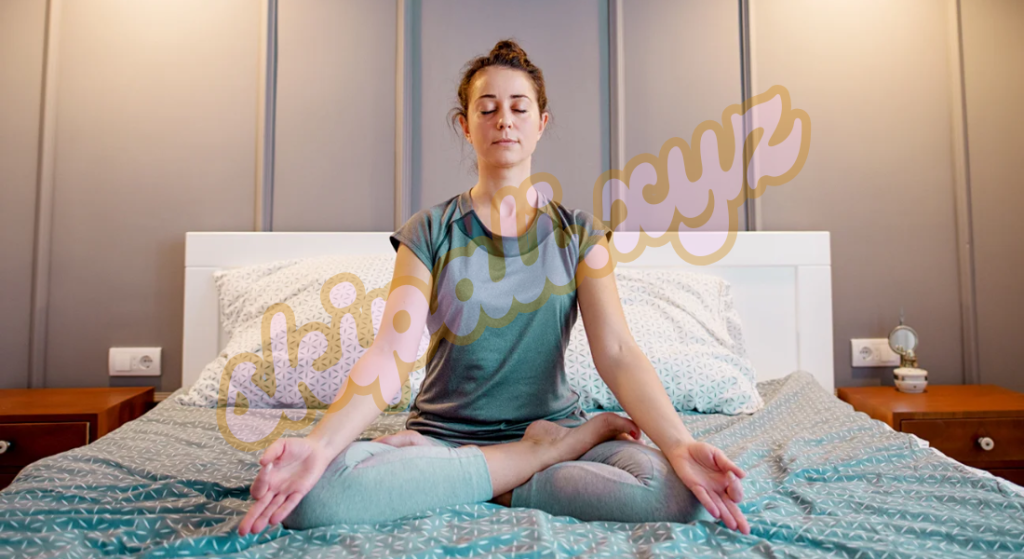Sleep is essential to our overall health and well-being, yet many people struggle with achieving restful, restorative sleep. Personalized Sleep Therapy Sessions offer a tailored approach to improving sleep quality, addressing the root causes of sleep disturbances, and helping individuals achieve better, more restful nights. Whether you suffer from insomnia, stress, or other sleep-related issues, personalized sleep therapy can be a game-changer, offering customized solutions that fit your specific needs. In this article, we’ll dive into the benefits, techniques, and how personalized sleep therapy can enhance your sleep patterns and overall quality of life.
The Importance of Sleep for Health
Before we dive into the specifics of personalized sleep therapy, it’s essential to understand why sleep is so important. Sleep is more than just a time for rest; it plays a crucial role in maintaining physical health, mental clarity, and emotional well-being. When we sleep, our bodies repair and regenerate, our brains consolidate memories, and our immune systems strengthen.
Chronic sleep deprivation can lead to various health problems, including increased stress, weakened immune function, poor cognitive performance, and a greater risk of developing chronic conditions such as heart disease, diabetes, and high blood pressure. By prioritizing healthy sleep habits and seeking professional help like personalized sleep therapy, individuals can significantly improve their overall health and quality of life.
What Are Personalized Sleep Therapy Sessions?
Personalized Sleep Therapy Sessions are tailored programs designed to address the specific sleep needs of each individual. Unlike generic sleep advice, these sessions are customized based on your unique lifestyle, sleep patterns, and underlying health issues. Personalized sleep therapy combines various techniques to help you fall asleep faster, stay asleep longer, and wake up feeling refreshed.
A personalized sleep therapy session typically involves:
- Sleep Assessment: A thorough evaluation of your sleep habits, environment, and any sleep-related problems you may be experiencing.
- Behavioral Therapy: Cognitive Behavioral Therapy for Insomnia (CBT-I) is often used to help individuals change negative thought patterns and behaviors that contribute to poor sleep.
- Relaxation Techniques: Deep breathing exercises, progressive muscle relaxation, and other calming techniques to reduce stress and anxiety before bed.
- Sleep Hygiene Recommendations: Tips for improving your sleep environment, including adjusting light, temperature, and noise levels in your bedroom.
- Lifestyle Adjustments: Personalized advice on diet, exercise, and daily routines to support better sleep.
By addressing your individual sleep needs, personalized sleep therapy can be more effective than one-size-fits-all solutions and can help you achieve lasting improvements in your sleep quality.
The Benefits of Personalized Sleep Therapy Sessions
- Better Sleep Quality: The most significant benefit of personalized sleep therapy is the improvement in sleep quality. By focusing on your specific sleep issues, these sessions can help you fall asleep faster, experience fewer awakenings during the night, and wake up feeling refreshed.
- Tailored Solutions for Unique Needs: Everyone’s sleep challenges are different. Whether you struggle with insomnia, anxiety, or sleep apnea, personalized sleep therapy addresses the underlying causes of your sleep issues, creating a customized plan that suits your unique needs.
- Stress Reduction: Sleep-related stress can be a vicious cycle. The more you worry about not getting enough rest, the harder it becomes to fall asleep. Personalized sleep therapy can incorporate stress-reduction techniques, such as mindfulness and relaxation exercises, to calm your mind and body before bedtime.
- Improved Mental Health: Chronic sleep deprivation is closely linked to mental health issues such as depression and anxiety. By improving the quality and quantity of your sleep, personalized sleep therapy can positively impact your emotional well-being and mental health.
- Boosted Productivity and Cognitive Function: When you get enough restful sleep, your brain works more efficiently, leading to better focus, memory, and decision-making. Personalized sleep therapy helps ensure that you get the deep, restorative sleep needed to boost cognitive performance and productivity.
- Long-Term Health Benefits: By addressing sleep issues early on, personalized sleep therapy can help prevent long-term health problems associated with poor sleep, including obesity, heart disease, and diabetes. With regular sleep therapy, you can create sustainable, healthy sleep habits that support long-term well-being.
Common Techniques Used in Personalized Sleep Therapy
- Cognitive Behavioral Therapy for Insomnia (CBT-I): One of the most widely used techniques in personalized sleep therapy is CBT-I. This form of therapy focuses on identifying and changing the thought patterns and behaviors that contribute to insomnia. By helping you understand how your thoughts impact your sleep, CBT-I can teach you how to reframe negative thinking and adopt healthier sleep habits.
- Relaxation Training: Stress and anxiety are common causes of sleep disturbances. Relaxation techniques such as deep breathing exercises, progressive muscle relaxation, and guided imagery can help you relax your mind and body before bed. By incorporating these relaxation strategies into your daily routine, you can reduce the tension that often prevents restful sleep.
- Stimulus Control Therapy: This technique involves training your body to associate your bed with sleep rather than wakefulness. You’ll learn to create a relaxing pre-sleep routine and avoid activities that may interfere with your ability to fall asleep, such as watching TV or using electronic devices.
- Sleep Restriction Therapy: Sleep restriction therapy is designed to help individuals who struggle with fragmented sleep. This technique involves limiting the time spent in bed to increase the pressure to sleep, ultimately leading to longer periods of restful sleep. Gradually, the amount of time you spend in bed is increased as your sleep improves.
- Chronotherapy: For those whose sleep issues are related to circadian rhythm disorders, chronotherapy may be used. This technique involves adjusting your sleep-wake schedule gradually to reset your internal body clock. By following a consistent sleep schedule, you can optimize your sleep cycle and improve overall sleep quality.

How to Choose the Right Personalized Sleep Therapy for You
Choosing the right personalized sleep therapy session is crucial to achieving the best results. Here are some factors to consider when selecting a program:
- Assess Your Sleep Needs: Before choosing a therapy session, take time to evaluate your sleep patterns and identify any specific issues you may be facing, such as difficulty falling asleep, frequent awakenings, or excessive daytime sleepiness.
- Consult with a Sleep Specialist: A sleep specialist or therapist can help assess your sleep challenges and recommend a personalized sleep therapy plan. Look for a licensed professional with experience in sleep disorders and a holistic approach to treatment.
- Consider the Techniques Used: Personalized sleep therapy can include a variety of techniques, from behavioral therapy to relaxation exercises. Be sure to choose a session that incorporates the techniques that are most suited to your sleep issues.
- Commitment to Consistency: Achieving lasting results from personalized sleep therapy requires consistency. Be prepared to commit to the techniques and strategies recommended by your sleep therapist and integrate them into your daily routine.
Is Personalized Sleep Therapy Right for You?
Personalized Sleep Therapy Sessions are a fantastic option for anyone looking to improve their sleep quality. Whether you’re struggling with insomnia, stress, or other sleep-related challenges, these tailored programs provide effective, long-term solutions. With the help of a professional, you can develop healthier sleep habits, reduce stress, and enjoy the mental and physical benefits of a good night’s sleep.
If you’re tired of restless nights and the negative effects of poor sleep, personalized sleep therapy can help you transform your sleep and your life. Investing in personalized therapy is an investment in your health, well-being, and happiness, allowing you to wake up each day feeling refreshed, rejuvenated, and ready to take on whatever comes your way.
Conclusion
In today’s fast-paced world, getting enough high-quality sleep is more important than ever. Personalized Sleep Therapy Sessions offer a customized solution for those looking to overcome sleep disturbances and enhance their overall well-being. With a variety of proven techniques and strategies, personalized therapy can help individuals achieve lasting improvements in sleep quality, reduce stress, and support long-term health. If you’re ready to transform your sleep and take control of your health, personalized sleep therapy is the answer you’ve been looking for.


